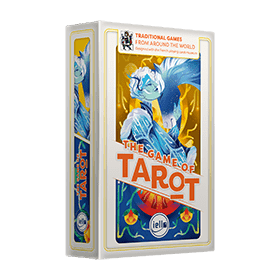frenchtarot
 Tarot is a trick card game which originality is its use of a special deck of 78 cards! Indeed 21 cards are Trumps which is a true 5th color after the classic ones (hearts, diamonds, clubs, spades).
Tarot is a trick card game which originality is its use of a special deck of 78 cards! Indeed 21 cards are Trumps which is a true 5th color after the classic ones (hearts, diamonds, clubs, spades).
This special deck was first used for divination purposes before being used for playing, first developed in Italy then in France (thought there are many variations in other countries.
This game adaptation features the most widely known French version, with a bidding mechanism. Points are scored collecting valuable cards such as Figures and three other important cards called "Bouts".
Número de xogadores: 3 - 5
Duración do xogo: 24 mn
Complexidade: 3 / 5
Xoga frenchtarot e outros 1229 xogos en liña.
Non son necesarias descargas - xogad directamente dende o teu navegador.
Cós teus amigos e miles de xogadores do mundo enteiro.
De balde.

Xoga frenchtarot e outros 1229 xogos en liña.
Non son necesarias descargas - xogad directamente dende o teu navegador.
Cós teus amigos e miles de xogadores do mundo enteiro.
De balde.


